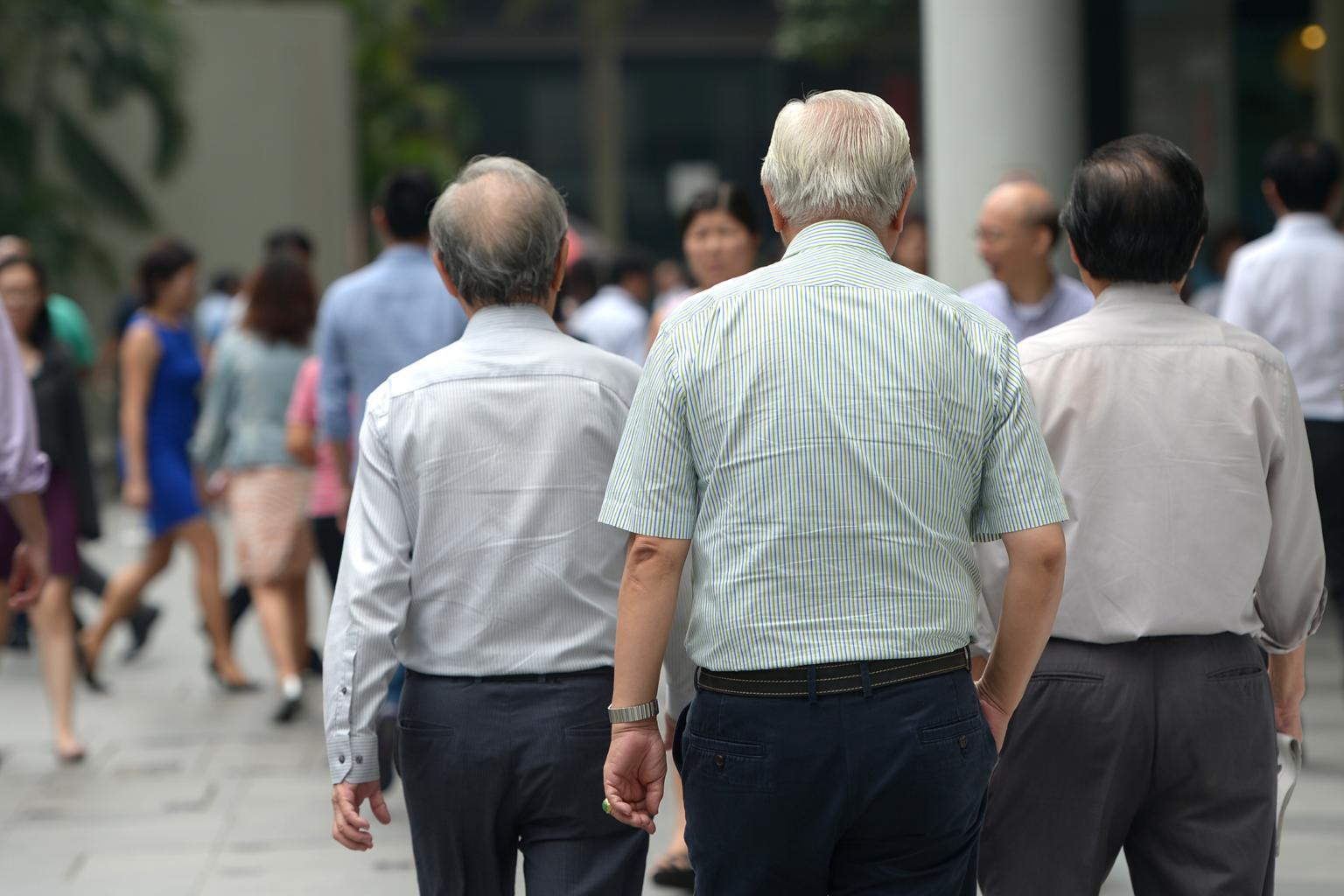Law to protect senior workers from dismissal due to age could be double-edged sword: Jessica Tan
Sign up now: Get ST's newsletters delivered to your inbox

There are challenges in a multi-generational workforce that require greater attention from organisations.
PHOTO: ST FILE
Follow topic:
SINGAPORE - A law meant to protect employees from being dismissed due to age could be a double-edged sword that leads to unconscious bias against hiring seniors, said Ms Jessica Tan (East Coast GRC) on Wednesday.
Under the Retirement and Re-Employment Act, when an employee reaches the retirement age - currently 63 years - the company will have to re-employ them until they reach the re-employment age, which is currently at 68.
In a speech calling for a more concerted focus on senior employability, Ms Tan told Parliament on Wednesday that companies may see it as a risk to hire a senior person if he or she turns out not to be a good fit for a role, as the company will be required to offer re-employment for the person upon reaching retirement age.
In response, Minister of State for Manpower Gan Siow Huang said firms have some flexibility to adjust re-employment terms, so that they can provide employment opportunities to senior workers while staying competitive.
An employer who is unable to identify a suitable position to re-employ the senior worker can, as a last resort, provide an Employment Assistance Payment in lieu of re-employment, she said. This is to help the worker tide over while he or she seeks alternative employment.
These flexibilities are the outcome of close discussions between tripartite partners, and seek to mitigate concerns that re-employment policies may inadvertently disincentivise the hiring of senior workers, said Ms Gan.
Ms Tan's speech was the culmination of a survey of 934 seniors on the employment of older workers, conducted by the PAP Seniors Group (PAPSG) in October 2021. This was followed by focus group discussions with 200 seniors, as well as surveys of employers and younger workers.
PAPSG is an advocacy group within the People's Action Party that champions elderly causes.
Ms Tan noted that the research threw up a paradox, whereby a vast majority of younger workers acknowledged the advantages of working with older colleagues, but a high number also reported challenges working alongside them.
These responses show a general sentiment that it is beneficial to work with older colleagues, but that there are challenges in a multi-generational workforce that require greater attention from organisations, said Ms Tan.
Noting that studies such as by the Organisation for Economic Cooperation and Development found that multi-generational workforces have increased productivity, resilience and other benefits, Ms Tan called for structural change around learning, employment models, work processes, human resource practices and career planning to better harness such a workforce.
In response, Ms Gan said everyone has a role to play in creating effective multi-generational workplaces, including employers who should adopt age-friendly practices such as job redesign and flexible work arrangements, and senior workers who play an important role in shaping perceptions.
"It may not be easy, but they should be open to job role changes and picking up new skills, to keep pace with technological advancements and changes in the ways of working," she added.
"The Government will always support our senior workers on this journey."
All employers are expected to abide by the Tripartite Guidelines on Fair Employment Practices, and Ms Gan reiterated that the Government does not tolerate age discrimination at the workplace.
A tripartite committee looking into enacting workplace fairness legislation was also formed in 2021, and is expected to complete its work in 2022.
"This will broaden the range of measures and penalties available to address workplace discrimination, including age discrimination," said Ms Gan.
Among the proposals Ms Tan made in her speech was to set aside a period of a few months every few years for work-related learning to take place, which will tackle "the vicious circle of talent gaps and skills relevancy affecting both businesses and individuals".
Ms Gan said the Government agrees on the need for a culture of continuous learning at the workplace, and that this is critical not just for senior workers, but all workers.
As businesses have different needs, they need to take ownership and conduct regular and structured career conversations with their senior workers, added Ms Gan.
She noted that the National Centre of Excellence for Workplace Learning has been enhanced to uplift the workplace learning capabilities of firms, including small and medium-sized enterprises, and that to date, over 1,700 companies have benefited from its programmes.
Ms Gan urged employers to use a structured career planning resource guide developed by the Manpower Ministry and the Singapore National Employers Federation to take a more deliberate approach in their workforce planning.

